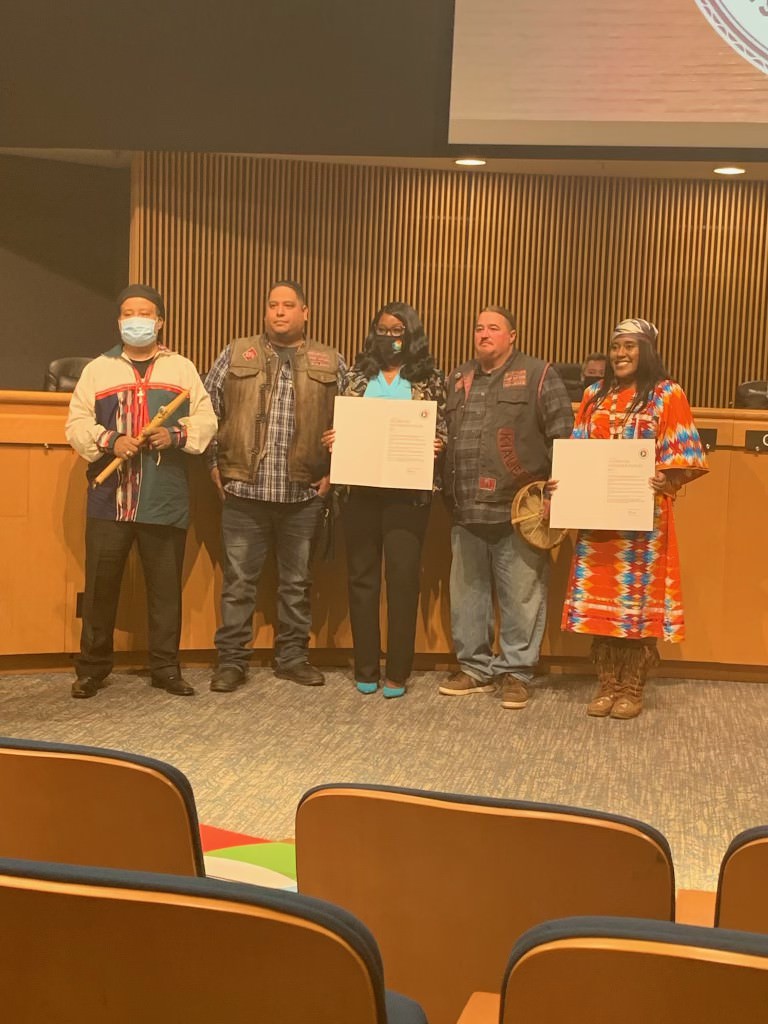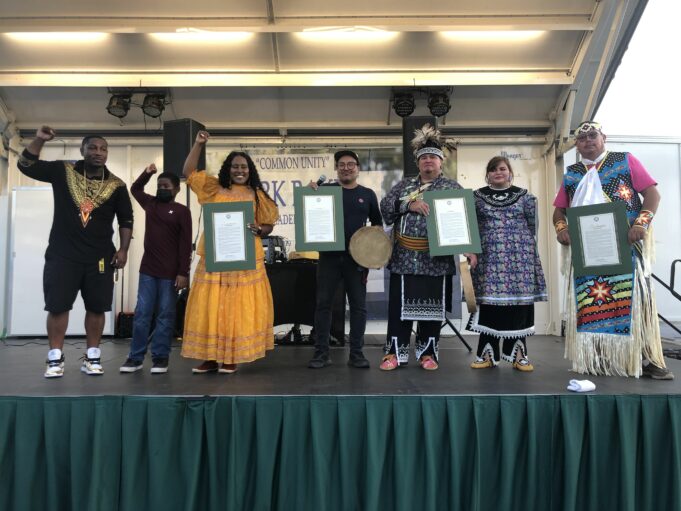ATLANTA—Georgia’s historical relationship with its Native American and Indigenous communities is fraught with turmoil, but the state is now seeing new waves of change. With the work of Oglala Lakota and Black activist YoNasDa LoneWolf and others, on Nov. 2, Gwinnett County, Ga., a suburban Atlanta county, changed Columbus Day to Indigenous People’s Day, proclaimed November to be Native American Heritage Month and issued a land acknowledgement proclaiment. The city of Atlanta also proclaimed November as Native American Heritage Month.
“Some people look at it as just a holiday, but it’s not. It’s a reminder of the genocide of so many Native Americans throughout history and the erasure of who we are today. There’s so many various ways of always trying to erase who we are when we’re still here,” Ms. LoneWolf said to The Final Call. “So, by having these holidays, it’s showing and stating that we are still here. History is not going to repeat itself.”
The land acknowledgement proclaiment would ensure that Native people are recognized during events held in the county.
“For Gwinnett County to proclaim and do a land acknowledgment on paper is very powerful, especially with the Indian Removal Act when they pushed so many Creek people from Gwinnett County,” Ms. LoneWolf said. She described the proclaiment as “an invitation for Creeks to come back home.”

The proclaiments come three years after South Fulton became the first city in the state to recognize Indigenous People’s Day. Ms. LoneWolf said she is now working to get both the city of Atlanta and the state of Georgia to change Columbus Day to Indigenous People’s Day.
She said the changes Gwinnett County made are significant because of the historic suffering of Indigenous people in the state. The Indian Removal Act of 1830 forced many Indigenous people from their native ancestral homelands, in what became known as the “Trail of Tears.” Ms. LoneWolf said some of those tribes included the Choctaw, the Muskogee (Creek) and the Cherokee.
Today, though Georgia has three state-recognized tribes—the Lower Muskogee Creek Tribe, the Cherokee of Georgia Tribal Council and the Georgia Tribe of Eastern Cherokee—there are no federally recognized tribes in the state. There are also several federal and state programs related to free health care for Native Americans and loan services for housing that aren’t found in Georgia.
“Natives in the state of Georgia have been fighting for our rights since the Trail of Tears time. As natives, we fought against the state when the Cherokees were forcefully removed. They won that in Congress,” said Joseph Jordan to The Final Call. “They went to Congress up to the Senate … and they won it to where they wouldn’t be removed, but then the president still allowed it. So, over hundreds of years of natives fighting for their rights to be where they’re at and acknowledgement of where they’re at.”
Mr. Jordan is an enrolled member of the Meherrin Nation of North Carolina, and he belongs to the Snipe Clan. He said the state of Georgia has never formally apologized for what was done to Indigenous people.
He and Ms. LoneWolf said one of their biggest challenges is educating others about who Native people are, because many don’t look like the “real” Indians seen on TV. Many are mixed blood. Some look Black, some look White with blue eyes, some look Mexican, some look Caribbean, and some look full-blooded Native.
Ms. LoneWolf’s next steps are to meet with the Black Caucus to back Indigenous People’s Day for the state of Georgia to be a part of Native American Heritage Month and to also help in another struggle: changing the name of the Atlanta Braves, the city’s professional baseball team. She described the name as a “very derogatory, racist name of a team.”
“No race of people should be a mascot,” she argued.
Mr. Jordan hopes to see a Native center started. He said it would be a place in the city where Native people could socialize and also ask for help.
“We’re not forgotten people. We’re not ancient people. We are still here,” Ms. LoneWolf said.













